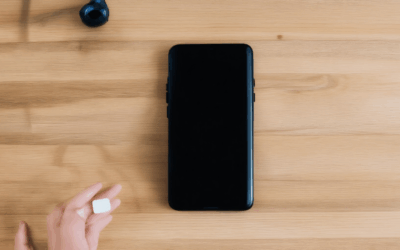Unveiling the Latest Trends in Lifestyle: A Deep Dive into Modern Lifestyle Choices
Lifestyle trends are constantly evolving, reflecting the changing values and priorities of society. As we navigate the complexities of modern life, people are seeking ways to adapt to new challenges while maintaining a sense of well-being and fulfillment. From the rise of wellness trends to the growing emphasis on sustainability, lifestyle choices have become a central focus for many individuals and businesses alike. Understanding these trends not only helps us stay informed but also equips us to make better decisions about how we live.
Over the years, lifestyle trends have shifted significantly, influenced by technological advancements, cultural shifts, and environmental concerns. Whether it’s the adoption of remote work policies, the resurgence of minimalist living, or the increasing popularity of plant-based diets, these changes underscore a broader movement toward healthier and more intentional ways of existence. For businesses, recognizing these trends can open doors to innovation and opportunities that resonate with contemporary audiences.
Exploring the intersection of technology and lifestyle, many are now redefining what it means to live in the modern age. From smart home devices to digital nomad lifestyles, the way we interact with our surroundings has undergone a profound transformation. At the same time, the push toward sustainability has prompted individuals and corporations to rethink their habits and practices, leading to a growing emphasis on eco-friendly lifestyles.
This article delves into the fascinating world of lifestyle trends, examining how they shape our lives and the world around us. By unpacking the meanings behind these shifts, we aim to provide insights into the forces driving change and how individuals and organizations can adapt to emerging trends. Whether you’re curious about the future of work-life balance or eager to learn how sustainability is reshaping daily life, this exploration offers a comprehensive overview of the latest developments in lifestyle choices.

Lifestyle Trend
A lifestyle trend refers to a popular change or shift in the way people live, work, and interact with their environment, often influenced by cultural, economic, and social factors. These trends reflect evolving values, behaviors, and societal norms, shaping daily habits and preferences.
Categories of Lifestyle Trends
- Health and Wellness :
- Increased focus on mental health awareness and accessibility of mental health apps.
- Popularity of plant-based diets and veganism.
-
Rise in demand for sustainable fashion and eco-friendly products.
-
Sustainability :
- Adoption of zero-waste lifestyles and reusable products.
-
Growth in demand for renewable energy sources and green technologies.
-
Technology Integration :
- Widespread adoption of smart home devices and IoT-enabled appliances.
-
Use of wearable technology for fitness tracking and health monitoring.
-
Remote Work Culture :
- Shift towards flexible work arrangements due to technological advancements and global events like the COVID-19 pandemic.
Drivers of Lifestyle Trends
- Economic Factors : Rising costs influence consumption patterns and disposable income levels.
- Cultural Shifts : Changing societal values, such as greater emphasis on mental health and environmental consciousness.
- Social Influence : Younger generations driving trends in fashion, diet, and lifestyle choices.
Examples of Lifestyle Trends
- The rise of digital nomad communities and co-working spaces.
- Increased investment in personal development and self-care routines.
- Expansion of e-commerce platforms offering sustainable and ethical products.
By understanding these trends, individuals can align their lifestyles with current societal shifts, embracing opportunities for personal growth and contributing to a more sustainable future.
What is the 7 lifestyle?
The 7 lifestyle refers to a set of habits and behaviors that contribute to overall well-being and longevity. These practices focus on optimizing physical health, mental clarity, and emotional resilience. Below is a breakdown of each component:
1. Prioritize Sleep
- Aim for 7-9 hours of quality sleep each night.
- Consistent sleep patterns support brain function, immune health, and recovery.
- Create a relaxing bedtime routine to improve sleep quality.
2. Maintain a Balanced Diet
- Focus on nutrient-dense foods like fruits, vegetables, lean proteins, and whole grains.
- Limit processed sugars, unhealthy fats, and excessive alcohol consumption.
- Incorporate regular meals and snacks to fuel energy levels.
3. Engage in Regular Physical Activity
- Aim for at least 30 minutes of moderate exercise most days of the week.
- Combine aerobic exercises with strength training and flexibility routines.
- Find activities you enjoy to stay motivated.
4. Manage Body Weight
- Aim for a healthy BMI through a combination of diet and exercise.
- Regular weigh-ins can help monitor progress and adjust habits as needed.
- Consistency is key to sustainable weight management.
5. Avoid Harmful Influences
- Limit exposure to substances like tobacco, alcohol, and recreational drugs.
- Surround yourself with positive influences and supportive relationships.
- Practice self-control to reduce the impact of negative habits.
6. Stay Hydrated
- Drink at least 8 glasses of water daily, adjusting for activity level and environment.
- Choose water over sugary drinks to maintain hydration without added calories.
- Monitor urine color to ensure adequate hydration levels.
7. Cultivate Healthy Relationships
- Build strong social connections with family, friends, and community members.
- Communicate openly and resolve conflicts constructively.
- Seek support when facing challenges and offer help to others.
By incorporating these seven lifestyle components, individuals can enhance their overall health, vitality, and life expectancy. Remember to tailor these practices to fit personal preferences and lifestyle needs for maximum impact. For more insights, explore our AOZZORA platform, which offers comprehensive guides and tools to support your journey.

Changing Lifestyles
Lifestyle changes involve altering your daily habits, routines, and behaviors to improve overall well-being, productivity, and quality of life. These adjustments can encompass physical health, mental health, social interactions, career development, and financial management. Making these changes thoughtfully and sustainably can lead to long-term benefits.
- Diet and Nutrition: Incorporating healthier eating habits, reducing processed foods, and adopting balanced meal planning to support energy levels and reduce chronic disease risks.
- Exercise Routine: Regular physical activity, whether through jogging, yoga, or strength training, to enhance fitness, reduce stress, and boost mood.
- Mental Health Practices: Implementing mindfulness, meditation, or therapy to manage stress, improve emotional resilience, and foster a positive mindset.
- Social Connections: Strengthening relationships through regular communication, spending quality time with loved ones, and building a supportive social network.
- Career Development: Pursuing new skills, setting personal growth goals, and actively seeking opportunities for advancement to achieve professional fulfillment.
- Financial Management: Adopting budgeting techniques, saving regularly, and investing wisely to secure financial stability and peace of mind.
Changing lifestyles requires patience, consistency, and self-compassion. Start with small, manageable steps and gradually build momentum. Track your progress to stay motivated and celebrate milestones along the way. Remember, the goal is to create a sustainable change that aligns with your values and long-term vision.

What Do We Mean by Lifestyle in Current Times?
Lifestyle refers to the way individuals live their lives, encompassing various aspects such as social relationships, consumption patterns, entertainment preferences, and personal style. It reflects one’s self-image and how they believe they are perceived by others.
Key Components of Modern Lifestyle
- Social Relations: The way individuals interact with friends, family, and communities, often influenced by social media platforms.
- Consumption Patterns: Choices regarding food, fashion, and other goods, shaped by trends and accessibility.
- Entertainment Preferences: Favorite hobbies, movies, music, and activities that reflect personal interests and values.
- Personal Style: Unique ways of dressing, grooming, and presenting oneself, often influenced by culture and individuality.
Impact of Technology on Lifestyle
Modern lifestyles are significantly influenced by technology, such as smartphones, social media, and streaming services. These tools shape daily routines, communication styles, and entertainment choices.
Examples of Modern Lifestyle Trends
- Digital Detox: Intentional reduction in screen time to maintain mental well-being.
- Eco-Friendly Living: Adoption of sustainable practices to reduce environmental impact.
- Remote Work Culture: Shift towards flexible work arrangements affecting daily habits and routines.
The Importance of Personal Boundaries
In today’s interconnected world, setting personal boundaries is essential for maintaining individuality and achieving a sense of balance in life.
Explore Aozzora’s Lifestyle Section for more insights and tips on crafting a meaningful modern lifestyle.
Modern Day Lifestyle
A modern-day lifestyle encompasses a unique blend of professional dedication, personal growth, and leisure activities. It reflects the dynamic nature of contemporary society, where individuals juggle career aspirations, familial responsibilities, and social engagements. This balanced approach to living often requires careful planning and adaptability to thrive in a fast-paced world.
Key Components of Modern Lifestyle
- Professional Ambition: Pursuing career goals and staying competitive in a rapidly evolving job market is a hallmark of modern living. Continuous learning and skill development are essential to keep pace with technological advancements and changing industries.
- Family and Relationships: Maintaining strong bonds with loved ones while balancing career demands is a significant aspect of modern life. This often involves finding ways to spend quality time with family despite busy schedules.
- Social Engagement: Staying connected with friends and community members through various social platforms and events is a common feature of contemporary living. Digital communication has made it easier to maintain these connections.
- Health and Wellness: Prioritizing mental and physical health has become increasingly important. Modern individuals recognize the need for regular exercise, mindfulness practices, and stress management techniques to sustain energy and productivity.
- Digital Tools and Connectivity: The integration of technology into daily life has revolutionized how we communicate, work, and entertain ourselves. Smart devices, apps, and online services are now integral to modern lifestyles.
Challenges and Adaptations
Modern living presents unique challenges, such as managing time effectively, maintaining work-life balance, and navigating the pressures of constant connectivity. However, adaptability and resilience are key traits that enable individuals to thrive in this environment.
The Role of Technology
Technology plays a pivotal role in shaping modern lifestyles. From remote work tools to fitness trackers, digital solutions have transformed how we live, work, and take care of ourselves. These innovations continue to redefine the boundaries of everyday life.
Celebrating Modern Progress
Despite the complexities, modern lifestyles offer numerous benefits, including greater opportunities for personal and professional growth. They empower individuals to shape their lives according to their values and aspirations, fostering a sense of control and fulfillment.
For more insights into modern living, explore Aozzora’s comprehensive coverage of lifestyle trends, including tips for achieving work-life balance and staying informed about the latest technologies impacting daily life. Visit our homepage to discover how we can support your journey through the modern lifestyle.

Best Example of Lifestyle
A lifestyle refers to the way individuals typically spend their time and manage their activities. It encompasses daily habits, preferences, and values that define how someone lives their life. Below are key components of a well-rounded lifestyle, along with practical examples:
- Health and Wellness : Prioritizing physical and mental health through regular exercise, balanced nutrition, mindfulness practices, and sufficient sleep. Examples include:
- Consistent workout routines, such as daily walks or gym sessions.
- Incorporating meditation or yoga to reduce stress.
-
Maintaining a clean and organized living space to promote relaxation.
-
Work-Life Balance : Striking a harmony between professional responsibilities and personal time. This involves setting boundaries and allocating time for hobbies, family, and self-care. Examples include:
- Limiting screen time outside working hours.
-
Scheduling “unplugging” days to disconnect from technology.
-
Diet and Nutrition : Making conscious food choices that align with personal beliefs and health goals. Examples include:
- Preparing meals at home to control ingredients and portion sizes.
-
Reducing consumption of processed foods and sugary snacks.
-
Hobbies and Interests : Engaging in activities that bring joy and fulfillment. Examples include:
- Reading books or joining book clubs.
-
Trying new creative projects like painting or cooking.
-
Relationship Building : Fostering meaningful connections with friends, family, and community members. Examples include:
- Regularly attending social gatherings or volunteering.
-
Practicing active listening and empathy in conversations.
-
Financial Management : Adopting strategies that lead to financial stability and security. Examples include:
- Budgeting and saving consistently.
-
Investing in long-term financial growth opportunities.
-
Travel and Exploration : Seeking new experiences and cultures through domestic and international travel. Examples include:
- Planning annual vacations to explore different destinations.
-
Visiting museums, historical sites, or natural wonders.
-
Continuous Learning : Committing to lifelong education and self-improvement. Examples include:
- Enrolling in online courses or workshops.
-
Actively seeking new knowledge through reading and research.
-
Spirituality and Purpose : Cultivating a sense of purpose and inner peace. Examples include:
- Participating in religious or spiritual practices.
-
Volunteering or mentoring others to contribute to society.
-
Sustainability and Eco-Friendly Living : Adopting practices that minimize environmental impact. Examples include:
- Recycling and reducing waste.
- Using eco-friendly products and services.
By integrating these elements into daily life, individuals can create a lifestyle that aligns with their personal values and brings lasting satisfaction. Aozzora encourages everyone to explore these areas and find what truly resonates with their unique needs and aspirations.




0 Comments